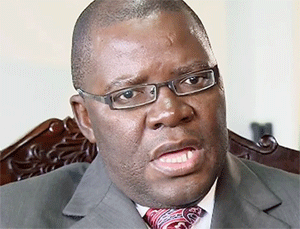
SECURITY of land tenure and opening-up of new markets are key imperatives in reviving Zimbabwe’s faltering agricultural sector, Finance minister Tendai Biti has said.
STAFF REPORT
Speaking at a recent Confederation of Zimbabwe Industries (CZI) symposium in Harare recently, Biti said the land audit remained an important step towards addressing the land question and reviving the economy.
“With regard to the land question, let’s have the land audit that we agreed to in the Global Political Agreement (GPA). We agreed, we signed on for them, let’s have the audits,” said Biti. “The function of the audit is not to delegitimise people; it’s actually to legitimise. There are genuine farmers out there, so you want to protect that individual so that he or she has peace of mind.”
Biti said the absence of a land market was depriving many citizens of Zimbabwe the opportunity to purchase land and use it productively.
He said that the result of not carrying out the audit and failure to democratise the land reform, was the creation of generations of Zimbabweans who wanted to own land but could not do so because there was no land market.
Biti said up to the year 1999, 74% of bank lending was channelled towards agriculture but following the land reform and the attendant destruction of mortgage finance, Zimbabwe was in a “calamitous” situation where 7% of bank lending was going to agriculture and 22% to consumption by individuals.
The idea behind the land audit espoused in the GPA is to identify under-utilised land in order to reposition the agricultural sector’s erstwhile substantial contribution to the GDP.
- Chamisa under fire over US$120K donation
- Mavhunga puts DeMbare into Chibuku quarterfinals
- Pension funds bet on Cabora Bassa oilfields
- Councils defy govt fire tender directive
Keep Reading
Zimbabwe embarked on a fast track land reform programme in 2000 to redress colonial imbalances.
However, the manner in which it was carried out led to international condemnation, as commercial farmers were ejected from the farms and in the process decimating production as the new farmers had neither the skills nor access to financing.
Biti said the government has to put an end to continued acquisitions to deal with security of tenure.
His calls come at a time when privately-owned conservancies around the country are being invaded despite the existence of Bilateral Investment Promotion and Protection Agreements.
An estimated 66% of Zimbabwe’s land is under communal farmers with experts saying the small holder farmer plays a critical role in agricultural production and food security. Independent estimates for 2012 indicate the agricultural sector contributed 20,3% to GDP, while industry and services sectors contributed 25,1% and 54,6% respectively.
Development consultant Mandivamba Rukuni emphasised the importance of establishing functional linkages between various sectors of the economy. “If we continue with current policies, both agriculture and manufacturing will be dead in less than five years,” he said. “There is need to re-establish vibrant, diversified and strong functional linkages with agriculture, mining, construction and the services industry.”











